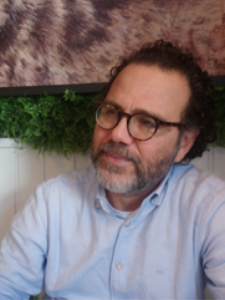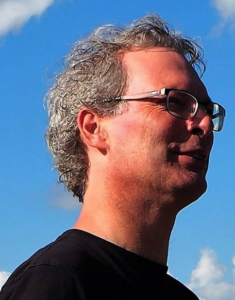
Machine Learning, AI, Data Science, and Complex Systems
– similarities, differences and how we can work together –
The idea behind the workshop is to bring together people from AI, Machine Learning, Data Science and Complex Systems, to make them have a meaningful discussion, and to summarize our findings in a publishable position paper. We namely believe that although these areas of study often cover similar problems, experts in these fields do not join forces often enough. This workshop could be an excellent opportunity to discover more about the different approaches to shared problems, and we hope it will foster discussions and future collaborations between the different participants.
The workshop would take two days: the first day will have a more conventional structure with a series of talks, and the second day would be entirely dedicated to discussions. We would also provide space for people who would like to stay for an extra day to continue the discussion and try to plan future collaborations.
Organizer: Artificial Intelligence Lab, Vrije Universiteit Brussel, Belgium Jelena Grujić and Hannah Pinson

Ernesto Estrada
Institute of Mathematics and Applications (IUMA), University of Zaragoza
Ernesto Estrada is ARAID researcher at the Institute of Mathematics and Applications (IUMA) at the University of Zaragoza since January 2019.
Before he was the Chair of Complexity Science at the University of Strathclyde in Glasgow. He works on the mathematics of networks where he has published more than 200 papers which have received more than 12,500 citations, and his h-index is 59. He is SIAM Fellow, Member of the Academy of Sciences of Latin America, and was a recipient of the Wolfson Research Merit Award of the Royal Society of London among other distinctions. He is the Editor in Chief of the Journal of Complex Networks (Oxford University Press), and Associate Editor of SIAM Journal of Applied Mathematics and of Proceedings of the Royal Society A. He has given plenary talks at many international conferences in applied mathematics and on network sciences, and he is frequently a lecturer at major international schools on these topics.

Arne Traulsen
Max-Planck Institute for Evolutionary Biology Plön, Germany
Arne Traulsen is Director of the Department Evolutionary Theory at the Max-Planck Institute for Evolutionary Biology, where he uses mathematics and computer simulations to study the dynamics of evolution. He is a theoretical physicist with PhD from Kiel University and a postdoc from Harvard University. He is an author of numerous scientific papers published in the most prestigious journals such as Nature, Science, PNAS, Physics Review Letters, etc. His papers were cited more than 12000 times and his h-index is 57.

Bart Verheij
Chair of artificial intelligence and argumentation at the University of Groningen
Bart Verheij investigates the theoretical, computational and empirical connections between knowledge, data, and reasoning, as a contribution to explainable, responsible and social artificial intelligence. His research focuses on artificial intelligence and argumentation, often with the law as an application domain. He led a research project on the connections between arguments, scenarios, and probabilities in forensic reasoning with evidence (NWO Forensic Science, 2012-2017) and now is co-coordinator of the Responsible AI part of the project `Hybrid Intelligence: Augmenting Human Intellect’ (NWO Gravitation, 2019-2029). Bart Verheij is head of the department of Artificial Intelligence in the Bernoulli Institute of Mathematics, Computer Science and Artificial Intelligence, University of Groningen. He participates in the Multi-Agent Systems research program. He is president of the International Association for Artificial Intelligence and Law (IAAIL). He has an MSc degree in Mathematics (the University of Amsterdam, algebraic geometry) and obtained his PhD degree at Maastricht University (Faculty of Law, Department of Metajuridica; Faculty of General Sciences, Department of Computer Science), on a dissertation about the formal modeling of argumentation, with applications in law. In the academic year 2013-2014, he was a resident fellow at Stanford University. He participated in CodeX – the Stanford Center for Legal Informatics, a collaboration between the Stanford AI Lab and Stanford Law School.
Day 1:
Day 2:
There would be 6 speakers on the stage, having 5 minutes to present their point of view and spark the discussion with everybody. Followed by a general discussion with all the participants.
Participants are randomly divided into groups and asked to sum up the discussion and present the summary to others. This would provide us with a first draft of the position paper we would write.
Day 3 (optional)
